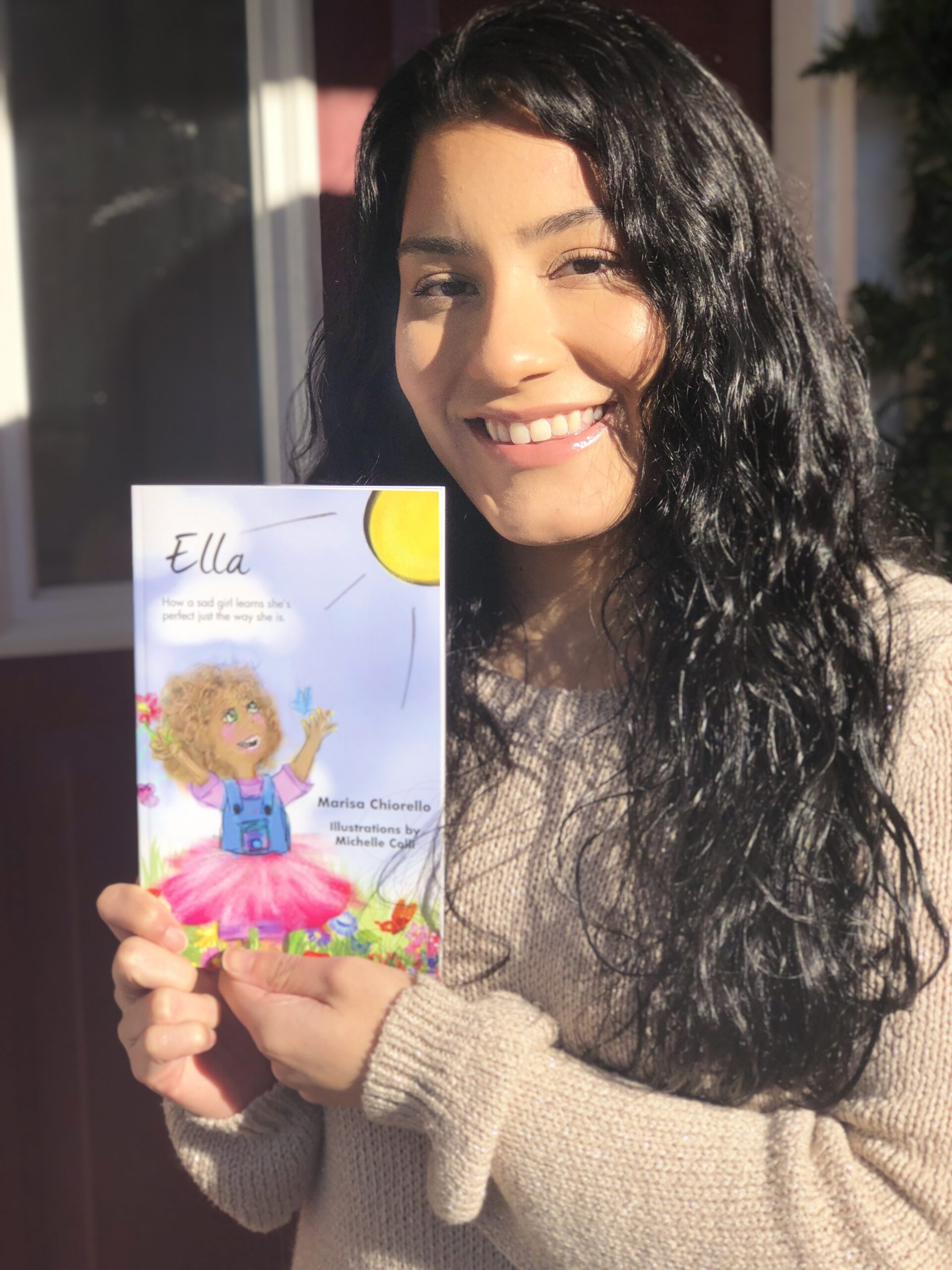Five-year-old Ella is too young to enroll in The College of New Jersey (TCNJ), but she has a special relationship with the school.
One might say she owes her existence to TCNJ’s Women’s and Gender Studies program.
Ella’s “mom” is children’s author Marisa Chiorello, a TCNJ alumna, class of 2015, with a BA in English Literature and Women’s and Gender Studies. Marisa who lives in Hamilton Township and works throughout the Princeton area as an English and writing tutor and freelance writer, said that TCNJ gave her the knowledge, skills and courage to write her first book titled “Ella- How a sad girl learns she’s perfect just the way she is.”
The character of Ella, the book’s heroine, however, is the product of Marisa’s life experiences and creativity. As described in the book, “Ella looked much different than her friends. She had curly hair, green eyes, tan skin, and a big tummy. Can she be perfect just the way she is? The lesson of the story is that, Ella – a sad girl – learns how to be joyful just the way she is, without reinventing herself into someone she is not.”
Ella’s journey reflects what Marisa experienced as a young woman, who flirted with eating disorders and an obsession to look like a “Barbie” doll in order to conform to the fashion magazine representation of beauty.
“In my quest to be beautiful, I lost something quite valuable – myself,” said Marisa. “In college, I decided to major in Women’s and Gender Studies…. [In one of the classes,] I learned all about girls’ body image. I read ‘Future Girl: Young Women in the Twenty-First Century,’ by Anita Harris. Ms. Harris writes about the ‘can-do’ girl, the fashion magazine model to whom girls are exposed.
“We are ‘taught’ that we must have this specific appearance to be the ‘can-do’ girl. She is beauty. She is success. If we don’t look exactly like her, we are failures. Or so I thought.
“I also read ‘Enlightened Sexism: The Seductive Message that Feminism’s Work is Done,’ by Susan J. Douglass. Here, I discovered the correlation between eating disorders and magazines…. Here’s the scary truth: girls today as young as five and six years old are developing eating disorders and reporting body dissatisfaction. Through the story, young Ella, my message to girls is simple: they don’t need to look like anyone else. They are beautiful just the way they are.”
Marisa began working on the book right after she graduated from college. The writing, she said, was the easiest part of the process. It flowed “naturally,” because she had the message all worked out in her mind before she put pen to paper or fingers to the keyboard.
Finding a small publisher – Showtime Books – and then an illustrator – Michelle Colli – was tough, and she ultimately succeeded because of help provided by her father, who knew people in the publishing business. And it was Marisa’s mother, the nurse in my doctor’s office, who played the role of publicist (and proud mom), by telling me about “Ella,” and the challenges of her daughter’s creative endeavor.
The hardest part for Marisa was getting the illustrations just right. “It was difficult to take the Ella I created in my mind and transform her so she was visible on paper. It took a lot to finally get Ella to look like how I pictured her in my head.”
The young author has hopes to take the Ella character to even greater heights as the heroine of a series of books, each having a message for little girls.
In addition, Marisa is working on a step-into-reading chapter book based on her youngest sister, nine-year-old Olivia. Another sister, Madison Cascardo, is currently attending TCNJ (class of 2021) and majoring in art education. Marisa hopes that Madison could illustrate future books – thus making Ella truly a member of Marisa’s immediate family – and the extended family of The College of New Jersey.

